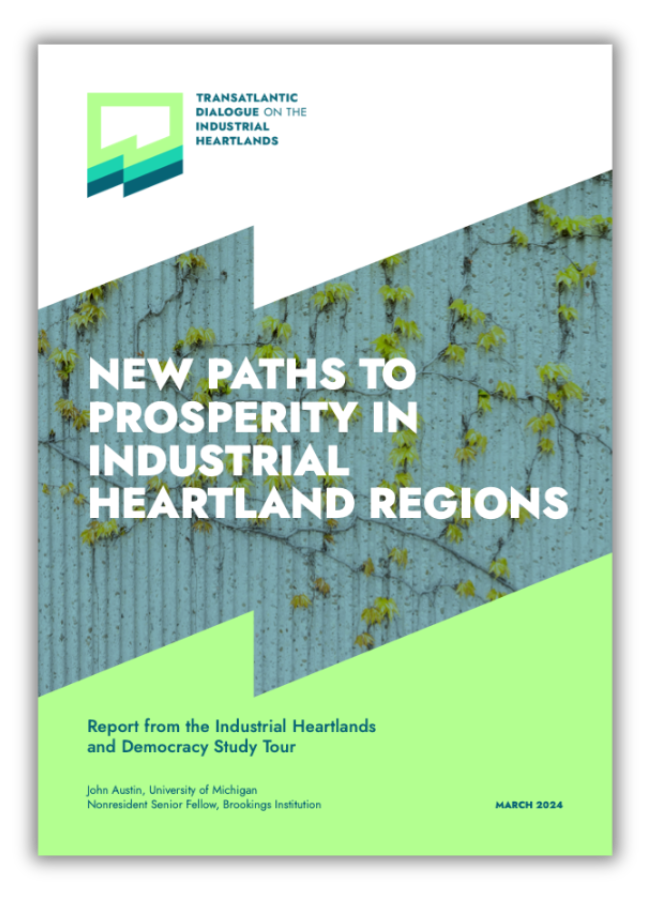How can we, economically and socially, revitalize former industrial heartland regions while promoting a green transition? This question sat at the heart of our Industrial Heartlands and Democracy Study Tour held in November 2023, which brought together officials and economic change-makers from the US Midwest for a transatlantic exchange with their European peers.
In this report, John Austin reflects on the experiences of the tour, which took participants to several iconic mining and steel regions: Charleroi, in Belgium’s Wallonia region; the Saarland linking Germany and France; and Saxony in Germany’s former East. The group gained vital insights into the practical daily work of policy and program shaping as well as community engagement and empowerment. Lessons learned include, for one, that transformation can succeed if it is embedded in local identities and taps into people’s pride in their communities. For another, local actors must be given the tools for proper governance, and decision-making should be regionally centered for effective place-based policy. This ensures that quality of life and place can be broadened, and investments in good public services are targeted well. After active and continual transatlantic learning, Austin observes that much experimentation in place-based policy is underway, and much more is needed.
About the Author

John Austin directs the Michigan Economic Center, a center for ideas and network-building to advance Michigan’s economic transformation. He also serves as a Non-Resident Senior Fellow with the Brookings Institution and is a Research Fellow with the Upjohn Institute for Employment Research, where he leads these organizations’ efforts to support economic transformation in the American Midwest and in the industrial heartlands of Western democracies. In these roles he has been the author of some of the most influential analysis of the politics and economics of industrial heartlands, as well as tangible guides and guidance for policymakers around constructive actions and change. Mr. Austin is also affiliated faculty with the University of Michigan’s Marsal Family School of Education, and the William Davidson Institute within the university’s Ross School of Business. Previously, he served 16 years in elected service on the Michigan State Board of Education. Mr. Austin received a master’s degree from Harvard University’s Kennedy School of Government, and a bachelor’s degree in Economics & Political Science from Swarthmore College, with High Honors and Phi Beta Kappa.






